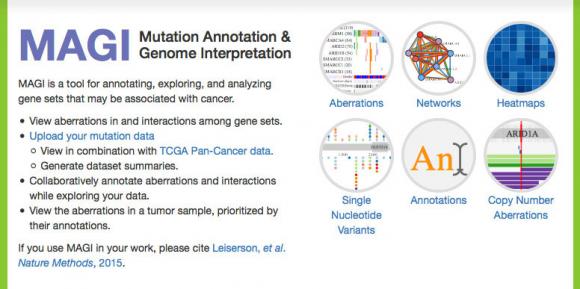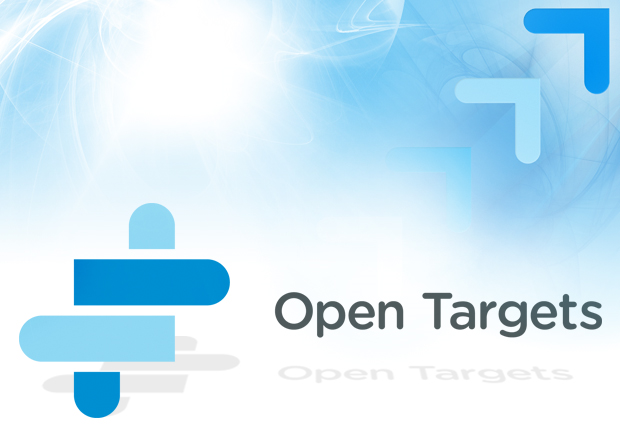 The University of Minnesota is expanding access to clinical trials and supporting the health research community by sharing its clinical trial resource, StudyFinder, with other institutions designated with Clinical and Translational Science Awards (CTSA), a program spearheaded by the National Institutes of Health (NIH). StudyFinder is an online tool pooling clinical trials and research studies in one space, with easy-to-understand language and functions. It helps patients and healthy volunteers get involved and allows researchers to publicize their clinical trials and connect with study volunteers.
The University of Minnesota is expanding access to clinical trials and supporting the health research community by sharing its clinical trial resource, StudyFinder, with other institutions designated with Clinical and Translational Science Awards (CTSA), a program spearheaded by the National Institutes of Health (NIH). StudyFinder is an online tool pooling clinical trials and research studies in one space, with easy-to-understand language and functions. It helps patients and healthy volunteers get involved and allows researchers to publicize their clinical trials and connect with study volunteers.
open health
See the following -
Open Source Governance and the Rise of a New Open Health Movement
 It's hard to tell if (or when) new open source foundations will appear and claim a leading role in healthcare. It would be interesting to see one created to scale an existing viable model, such as the one from Oroville Hospital using VistA. Or we could see OSEHRA shifting its focus and expanding its charter beyond just the US government space. Nevertheless, the successful foundation would keep a low barrier to entry for innovators, allowing them to incorporate and scale open source healthcare technologies into commercial products. Time will tell, but what's for certain is that we live in interesting times, and I am looking forward to massive innovation in healthcare in the near future. The time is ripe.
It's hard to tell if (or when) new open source foundations will appear and claim a leading role in healthcare. It would be interesting to see one created to scale an existing viable model, such as the one from Oroville Hospital using VistA. Or we could see OSEHRA shifting its focus and expanding its charter beyond just the US government space. Nevertheless, the successful foundation would keep a low barrier to entry for innovators, allowing them to incorporate and scale open source healthcare technologies into commercial products. Time will tell, but what's for certain is that we live in interesting times, and I am looking forward to massive innovation in healthcare in the near future. The time is ripe.
- Login to post comments
Open Source Health announces launch of the first Women’s Precision Medicine Platform in Atlanta, USA
 Open Source Health Inc....a cloud based precision medicine platform that puts control into the hands of women to educate, advocate and collaborate on their own healthcare is pleased to announce the launch of the myAva Precision Medicine Platform with it’s first cohort of women in Atlanta, GA. “After 2 years of development we are finally set to deliver precision medicine to women with PCOS” says Sonya Satveit, CEO of Open Source Health Inc. “By providing an in-depth molecular insight of each woman, myAva will help achieve a new understanding of PCOS and has the potential to provide precision treatment programs customized to each woman’s unique molecular makeup.”
Open Source Health Inc....a cloud based precision medicine platform that puts control into the hands of women to educate, advocate and collaborate on their own healthcare is pleased to announce the launch of the myAva Precision Medicine Platform with it’s first cohort of women in Atlanta, GA. “After 2 years of development we are finally set to deliver precision medicine to women with PCOS” says Sonya Satveit, CEO of Open Source Health Inc. “By providing an in-depth molecular insight of each woman, myAva will help achieve a new understanding of PCOS and has the potential to provide precision treatment programs customized to each woman’s unique molecular makeup.”
- Login to post comments
Open Source Health gains access to over 300,000 Medical Providers in the United States
Open Source Health Inc. (OSH), a cloud based integrative healthcare platform that puts control into the hands of women to educate, advocate and collaborate on their own healthcare is pleased to announce its partnership with The DocGraph Journal DocGraphan open source big data project that has identified all medical providers in the USA.
- Login to post comments
Open Source Immunization Forecaster Updated to Support Pfizer COVID Vaccine
 On December 15, 2020, HLN released a new version (v1.26.2) of the Immunization Calculation Engine (ICE) in support of the Pfizer COVID vaccine. ICE is a state-of-the-art open source software system that provides clinical decision support for immunizations for use in Immunization Information Systems (IIS), Electronic Health Record (EHR), and Personal Health Record (PHR) Systems. Version 1.26.2 includes support for new COVID-19 Vaccine Group (with the Pfizer vaccine only). A subsequent release, coming soon, will likely add support for the Moderna vaccine. Read More »
On December 15, 2020, HLN released a new version (v1.26.2) of the Immunization Calculation Engine (ICE) in support of the Pfizer COVID vaccine. ICE is a state-of-the-art open source software system that provides clinical decision support for immunizations for use in Immunization Information Systems (IIS), Electronic Health Record (EHR), and Personal Health Record (PHR) Systems. Version 1.26.2 includes support for new COVID-19 Vaccine Group (with the Pfizer vaccine only). A subsequent release, coming soon, will likely add support for the Moderna vaccine. Read More »
- Login to post comments
Open Source in the Worldwide COVID-19 Response
 February marks the celebration of creation of the Open Source Initiative (OSI) in 1998. OSI created the standard definition of the term Open Source that helped guide many of LPI's initiatives today. Through the past year, open source provided many opportunities to organizations to continue to work, implement their projects, and continue reaching out to communities. Here are just a few examples of how open source provides opportunities through the face of COVID-19. The COVID-19 crisis brought out all the creativity of the open source movement. In every area of innovation--open source software, open data, open collaboration, and even open equipment--companies and research institutes have addressed medical and public health needs quickly. This article highlights some of the initiatives in each area.
February marks the celebration of creation of the Open Source Initiative (OSI) in 1998. OSI created the standard definition of the term Open Source that helped guide many of LPI's initiatives today. Through the past year, open source provided many opportunities to organizations to continue to work, implement their projects, and continue reaching out to communities. Here are just a few examples of how open source provides opportunities through the face of COVID-19. The COVID-19 crisis brought out all the creativity of the open source movement. In every area of innovation--open source software, open data, open collaboration, and even open equipment--companies and research institutes have addressed medical and public health needs quickly. This article highlights some of the initiatives in each area.
- Login to post comments
Open Source Software Foundation Implements suiteCRM to Support Code4Health
 NHS finances are under intense pressure and demand for services is rising. Something has to give and business as usual is not an option. NHS England recognised this when it supported the establishment of Code4Health, an initiative that stimulates and supports IT innovation in healthcare. One of outcomes of the initiative was to establish an open source (OS) practice, reaching out to an increasing number of open source projects, providing software suitable for use across UK health and care. Read More »
NHS finances are under intense pressure and demand for services is rising. Something has to give and business as usual is not an option. NHS England recognised this when it supported the establishment of Code4Health, an initiative that stimulates and supports IT innovation in healthcare. One of outcomes of the initiative was to establish an open source (OS) practice, reaching out to an increasing number of open source projects, providing software suitable for use across UK health and care. Read More »
- Login to post comments
Open Source Software Is Transforming Healthcare
 In the summer of 2022, the UK government and NHS England published its Open Source Policy, stating that open source technology is: Particularly suitable for use within the healthcare industry where, through active collaboration between IT suppliers and user/clinicians communities, solutions can be honed to maximise benefits to delivery of health and social care. The public statement by NHS England is just the latest development in a broader trend: The wholehearted embrace of open source software by the healthcare sector. And no wonder; open source presents myriad opportunities for this most complex of industries, with potential solutions across various sub-sectors. Yes, open source is now powering everything from medical wearables to healthcare human resource management.
In the summer of 2022, the UK government and NHS England published its Open Source Policy, stating that open source technology is: Particularly suitable for use within the healthcare industry where, through active collaboration between IT suppliers and user/clinicians communities, solutions can be honed to maximise benefits to delivery of health and social care. The public statement by NHS England is just the latest development in a broader trend: The wholehearted embrace of open source software by the healthcare sector. And no wonder; open source presents myriad opportunities for this most complex of industries, with potential solutions across various sub-sectors. Yes, open source is now powering everything from medical wearables to healthcare human resource management.
- Login to post comments
Open Source Solutions For Public Health Case Reporting and COVID-19
 The United States is continuing its slow emergence from a nation-wide shut down imposed to slow down the spread of COVID-19. Most states have started to reopen, with bars, restaurants, and many workplaces starting to fill. As people begin to spend more time together again, it is critically important that public health agencies do everything they can to help prevent further spread of the infection and continue to monitor the level of infection within the population. Data is an important tool that public health has to understand what is going on in the country. Years of limited government investment and neglect of current systems has limited public health's ability to meet the challenges of managing both localized outbreaks and pandemics.
The United States is continuing its slow emergence from a nation-wide shut down imposed to slow down the spread of COVID-19. Most states have started to reopen, with bars, restaurants, and many workplaces starting to fill. As people begin to spend more time together again, it is critically important that public health agencies do everything they can to help prevent further spread of the infection and continue to monitor the level of infection within the population. Data is an important tool that public health has to understand what is going on in the country. Years of limited government investment and neglect of current systems has limited public health's ability to meet the challenges of managing both localized outbreaks and pandemics.
- Login to post comments
Open Source Tools Provide An Economic Advantage For Science
 Free and open source software (FOSS) and the distributed digital manufacturing of free and open source hardware (FOSH) have shown great promise for developing custom scientific tools. For some time now, FOSH has provided scientists a high return on investment. In fact, my previous research in the Open Source Labreported substantial economic savings from using these technologies. However, the open source design paradigm has since grown by orders of magnitude; now, there are examples of open source technology for science in the vast majority of disciplines, and several resources, including the Journal of Open Hardware, are dedicated to publishing them.
Free and open source software (FOSS) and the distributed digital manufacturing of free and open source hardware (FOSH) have shown great promise for developing custom scientific tools. For some time now, FOSH has provided scientists a high return on investment. In fact, my previous research in the Open Source Labreported substantial economic savings from using these technologies. However, the open source design paradigm has since grown by orders of magnitude; now, there are examples of open source technology for science in the vast majority of disciplines, and several resources, including the Journal of Open Hardware, are dedicated to publishing them.
- Login to post comments
Open Source Web App Helps Researchers Explore Cancer Genetics
 Brown University computer scientists have developed a new interactive tool to help researchers and clinicians explore the genetic underpinnings of cancer. The tool — dubbed MAGI, for Mutation Annotation and Genome Interpretation — is an open-source web application that enables users to search, visualize, and annotate large public cancer genetics datasets, including data from The Cancer Genome Atlas (TCGA) project. “The main motivation for MAGI has been to reduce the computational burden required for researchers or doctors to explore and annotate cancer genomics data,” said Max Leiserson, a Ph.D. student at Brown who led the development of the tool.
Brown University computer scientists have developed a new interactive tool to help researchers and clinicians explore the genetic underpinnings of cancer. The tool — dubbed MAGI, for Mutation Annotation and Genome Interpretation — is an open-source web application that enables users to search, visualize, and annotate large public cancer genetics datasets, including data from The Cancer Genome Atlas (TCGA) project. “The main motivation for MAGI has been to reduce the computational burden required for researchers or doctors to explore and annotate cancer genomics data,” said Max Leiserson, a Ph.D. student at Brown who led the development of the tool.
- Login to post comments
Open Targets: New Name, New Data
 Following the successful launch of its Target Validation platform at the end of 2015, the Centre for Therapeutic Target Validation has released its first open experimental datasets. Now renamed Open Targets, the pioneering public–private initiative remains committed to speeding up the discovery of new medicines. Open Targets projects use genome-scale experiments and analysis to provide evidence on the biological validity of therapeutic targets – and to glean insights into the likely effectiveness of pharmacological intervention on these targets...
Following the successful launch of its Target Validation platform at the end of 2015, the Centre for Therapeutic Target Validation has released its first open experimental datasets. Now renamed Open Targets, the pioneering public–private initiative remains committed to speeding up the discovery of new medicines. Open Targets projects use genome-scale experiments and analysis to provide evidence on the biological validity of therapeutic targets – and to glean insights into the likely effectiveness of pharmacological intervention on these targets...
- Login to post comments
Open-source Code Leads to the Adoption of University of Minnesota's StudyFinder by Additional Translational Medicine Research Institutions
- Login to post comments
OpenBionics Makes Low-Cost Open Source Robotic Hands Available to Amputees Around the World
 Doing good for the world is often the nature of an open source software or hardware project. Offering code and schematics to others free of charge and with a license that allows for reuse and modification is often done to help others. Knowing this, I was still surprised to learn about an incredible project that combines robotics and prosthetics. This Instagram video of a robotic hand stopped me in my tracks. Further investigation revealed that the hand is the creation of OpenBionics...
Doing good for the world is often the nature of an open source software or hardware project. Offering code and schematics to others free of charge and with a license that allows for reuse and modification is often done to help others. Knowing this, I was still surprised to learn about an incredible project that combines robotics and prosthetics. This Instagram video of a robotic hand stopped me in my tracks. Further investigation revealed that the hand is the creation of OpenBionics...
- Login to post comments
openEHR Community Rises to the Challenge of Coronavirus
 The global openEHR community led by the major openEHR vendors DIPS (Norway) and Better (Slovenia) have today released open source components to assist software developers creating applications and services to help those fighting the global Coronavirus (COVID-19) pandemic. When the first case of Coronavirus arrived in Norway, Bjørn Næss from DIPS (Norway's largest supplier of hospital IT systems) recognised the need to rapidly develop software to help monitor the outbreak, and reduce the data collection burden on overstretched health workers.
The global openEHR community led by the major openEHR vendors DIPS (Norway) and Better (Slovenia) have today released open source components to assist software developers creating applications and services to help those fighting the global Coronavirus (COVID-19) pandemic. When the first case of Coronavirus arrived in Norway, Bjørn Næss from DIPS (Norway's largest supplier of hospital IT systems) recognised the need to rapidly develop software to help monitor the outbreak, and reduce the data collection burden on overstretched health workers.
- Login to post comments
openEHR: A Game Changer Comes of Age
 I’ve been watching openEHR over more than fifteen years and have always been impressed by its potential to enable us to do things differently, but it’s been a slow burn, with limited take up, particularly in the United Kingdom (UK) where it was invented. However, recent developments mean that I think this is about to change and that openEHR is going to take off in a big way which is going to revolutionize how we think about and do digital health and increase the speed at which we can do it by at least two orders of magnitude. Why do I say this and what evidence is there to support my assertion?
I’ve been watching openEHR over more than fifteen years and have always been impressed by its potential to enable us to do things differently, but it’s been a slow burn, with limited take up, particularly in the United Kingdom (UK) where it was invented. However, recent developments mean that I think this is about to change and that openEHR is going to take off in a big way which is going to revolutionize how we think about and do digital health and increase the speed at which we can do it by at least two orders of magnitude. Why do I say this and what evidence is there to support my assertion?
- Login to post comments